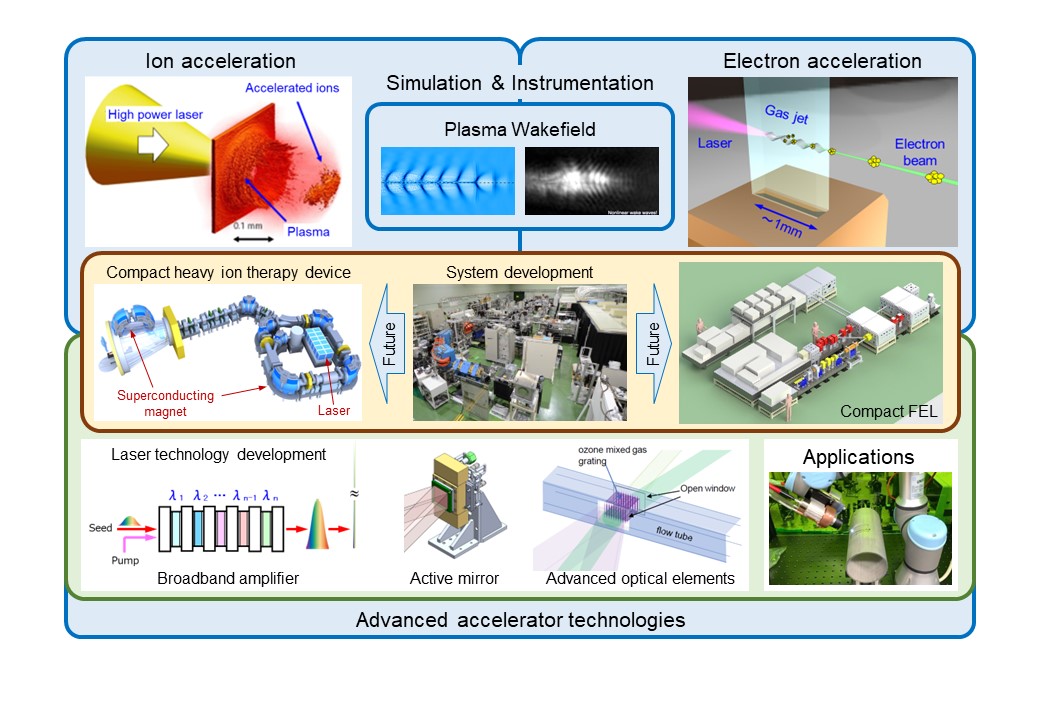Technology theme: Laser-plasma acceleration technologies leading to innovative downsizing and high energy of particle accelerators
Particle acceleration is applied to a wide range of research areas, including physics, chemistry, biology, engineering, agriculture, medicine, pharmacology, and archaeology. It is generally conducted to perform research focused on solving the mysteries of substances and life; further, there have also been attempts to determine the means of utilizing this technology in closely related industrial sectors and society. In recent years, progress has been made in laser-plasma acceleration technology, as high-intensity lasers have been used to innovatively shorten the length of apparatus required to accelerate particles. As this technology will lead to the downsizing of particle accelerators, it is expected that opportunities for their use will consequently be expanded.
Development and demonstration of laser-driven quantum beam accelerators

| R&D Period | 2017.11- |
|---|---|
| Grant Number | JPMJMI17A1 |
| Project Summary | Summary |
Summary:
Particle accelerators are used in a wide range of fields over academic, industrial, and medical purposes. However, the huge size of the system and the expensive construction costs have blocked their broader use. In this project, we aim to achieve significant downsizing of particle accelerators and reducing the cost through development and exploitation of laser plasma acceleration technology which enhances the acceleration gradient by several orders of magnitude compared with conventional accelerators. Broad contribution to social implementation in the following areas is expected.
1. Development of small electron accelerators will drastically improve accessibilities to synchrotron and FEL light sources as infrastructure, significantly promoting a wide range of scientific and industrial applications.
2. Development of small ion accelerators will reduce the cost for construction / operation of medical-purpose accelerators such as cancer therapy and promote the deployment to existing hospitals. It is expected to extend the span of life while keeping high QoL and reduce medical expenses.
3. Development of stabile high-power compact lasers enables widespread distribution of new domestic lasers to the global market, and contribute to laser-related industries.

R&D Team
National Institutes for Quantum Science and Technology;
SANKEN, The University of Osaka; High Energy Accelerator Research Organization;
RIKEN; Institute for Molecular Science; Institute of Laser Engineering, The University of Osaka;
The University of Electro-Communications; Nara Womenʼs University
Project Website
https://www.sanken.osaka-u.ac.jp/lpa/
|
Affiliation and job title should automatically appear from the information that a researcher registered with researchmap.
Data may be outdated or undocumented. When there is not a connection via the internet, data are not displayed. |


